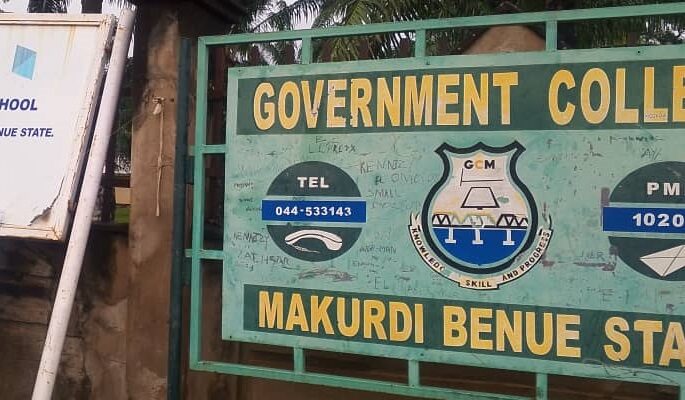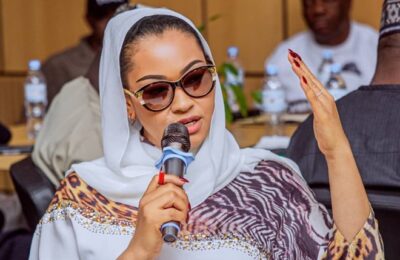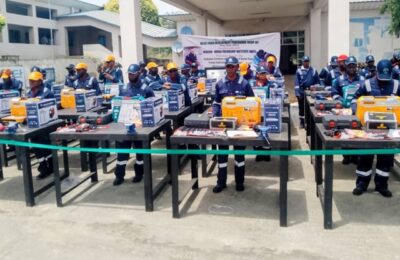Government College Makurdi, once the pride of Nigeria’s Middle Belt and a symbol of discipline and excellence, is today a shadow of its former self. Classrooms that once inspired knowledge now sag under years of neglect, laboratories that trained young scientists have gone silent, and the culture of discipline that once forged character has weakened. But a fresh vision, championed by its alumni, seeks not only to rescue the school from decline but to reinvent it for a new century.
At the National Convention of the Makurdi Old Boys Association on August 16, 2025, Professor Raymond A. Wuana, Deputy Vice Chancellor of Joseph Sarwuan Tarka University, delivered a stirring call to action. He did not mince words. “Government College Makurdi may have lost its shine, but it has not lost its soul,” he declared. _“Beneath the worn-out roofs and broken chairs lies a spirit that refuses to die – a spirit that once made boys into men.” It was more than nostalgia; it was a challenge.
The gathering was not just a formal convention; it was a reunion of passion, memory, and renewed purpose. As the Governor of MOBA, Class of 2004, i rise from the mountain of Igalaland with visible delight and acknowledged the presence of my own classmates who had journeyed back to the campus in solidarity. “It gives me joy,” “to see Celebrity Uleh Emmanuel, Celebrity Cephas Azaigba, Celebrity Jeremiah Sani, and Deputy Class Governor.” That moment captured the spirit of the day — a reminder that beyond strategy and funding, the real power of restoration lies in human connection and the willingness of old boys to stand shoulder to shoulder for their alma mater.
Founded in an era when public boarding schools were built as nurseries for the best and brightest, GCM once embodied a national dream. It was an environment where teachers were revered, laboratories were alive with science experiments, students carried themselves with pride, and inter-house competitions built leaders who later shaped professions across Nigeria. Alumni recall the morning anthem, the disciplined uniforms, the high standards of character formation. The institution was not just a school; it was an identity. But time and neglect have taken their toll. Today, broken classrooms, overcrowded dormitories, overstretched teachers, and outdated facilities stand as stark reminders of decline. The problem, Wuana insisted, is not about apportioning blame but about accepting collective responsibility. “We are all beneficiaries of a heritage that gave us a head start in life,” he reminded his audience.
The realities are sobering. Many classrooms and laboratories are unfit for learning. Students, crammed into inadequate spaces, struggle in an environment that hardly prepares them for the challenges of the digital age. Teacher morale has waned, and the strong disciplinary culture that once defined GCM has weakened. These struggles mirror the broader state of Nigeria’s public secondary schools, but for alumni, Government College Makurdi holds a special urgency. It must be restored not only for memory’s sake but for the future of generations yet to pass through its gates.
To that end, Wuana laid out a six-point roadmap that moves beyond sentiment and grounds the rebuilding process in strategy. The plan envisions an infrastructure renewal program to restore classrooms, hostels, laboratories, libraries, and staff quarters, with targets for renovation each year. It calls for teacher empowerment through recruitment incentives, postgraduate sponsorship, and continuous training. It outlines the establishment of a digital learning center with computers, solar power, and internet access, alongside digitized libraries and student records. It proposes a revival of leadership and discipline through debating clubs, press associations, sports competitions, and alumni mentorship. It integrates vocational and entrepreneurial training into the curriculum, with carpentry, coding, tailoring, agriculture, and photography forming part of the new skill set for students. Finally, it introduces financial reforms, including a “One Set, One Project” campaign, automated alumni dues, and the creation of a MOBA Endowment Fund with a target of ₦500 million by 2030, backed by annual accountability reports.
This is not mere wishful thinking. Wuana pointed to successful models across Nigeria. Government College Ibadan alumni raised funds to build an e-library and renovate hostels. King’s College alumni not only provide scholarships but also pay volunteer STEM teachers. Barewa College alumni established a billion-naira trust fund for capital projects. These examples, he stressed, prove one thing: “Alumni are the true lifeline of any great school. If they fail to act, decline is inevitable.” The challenge is not whether it can be done, but whether Makurdi Old Boys will match rhetoric with commitment.
The convention itself marked a turning point. Delegates were urged to move beyond WhatsApp nostalgia and occasional reunions. The new call is for each alumnus to adopt a project, mentor a student, or contribute a skill. It is a call for sets to rise to responsibility, for chapters to become centers of mobilization, for resources and networks to be deployed deliberately. “We must not just celebrate our history,” Wuana said. “We must reclaim it.” The urgency is not only to save infrastructure but to rekindle the spirit of excellence, leadership, and service that once defined GCM.
As the gathering drew to a close, the mood shifted from lamentation to resolve. Government College Makurdi’s decline is undeniable, but its future is not sealed. The soul of the school still lives in the men it produced and the values it once instilled. Whether its next chapter will be one of rebirth depends not on government policy alone but on the will of its alumni to act. Wuana’s words rang like both a warning and a promise: “Let us not just remember the glory. Let us restore it.”




